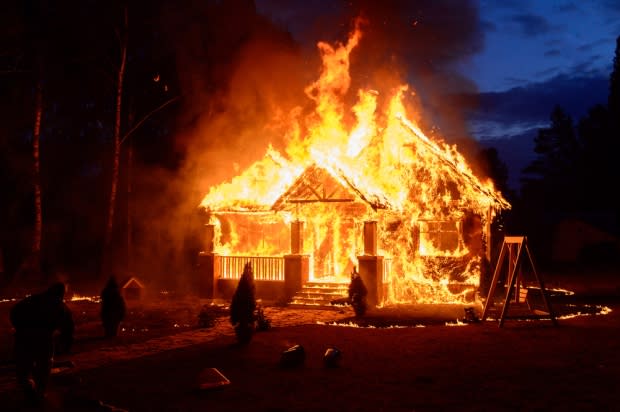Saskatoon firefighter hopes federal building code update will add indoor sprinklers for homes
Calls for indoor sprinklers to be a part of all new home construction have been heating up, and one Saskatoon firefighter is hoping to see the change become part of Canada's building code.
Assistant fire chief Wayne Rodger said he believes that having indoor sprinklers would reduce the number of fire deaths. That view is echoed by the Canadian Association of Fire Chiefs. The call was amplified following the deaths of seven children in a Halifax house fire this past February.
"We're seeing the growth of fires in homes happening faster, which is compounded by newer construction methods, which are made of lighter materials, less dense materials, which, of course, then burn faster as well," Rodger told CBC's Saskatoon Morning.
He said furniture is also increasingly made of synthetic material that is more flammable than what was used in the past. That, along with open-concepts in newer builds, can make for a combustible combination.
People may mistakenly believe that all the indoor sprinklers in a home will go off in the case of a fire or smoke, causing water damage everywhere, but Rodger said only the sprinkler head closest to the heat is automatically activated, meaning damage is limited to the immediate area.

Swift Current mandates sprinklers in certain areas
The Canadian Commission on Building and Fire Codes has been examining the costs and benefits of residential sprinklers as it updates the National Building Code for 2020.
Swift Current, Sask. already has a bylaw that mandates the installations of residential fire sprinklers in new builds in certain areas on the outskirts of the city. The city's website notes these properties are farther from the fire hall and that it can take longer for firefighters to get to emergencies in those areas. It also offers a financial incentive for people to install residential sprinklers, with a return on property tax over five years to a maximum of $4,000.
Rodger said he's heard estimates that installation of indoor sprinklers on a new build is equivalent to floor covering costs, but it's not always an investment people want to make.
"It's a matter of economics. If you don't have to add to the cost of your home, you won't, unless it's something you really want to enjoy," he said.
"The reality is these sprinkler systems in a residential home, they're really just an extension of your plumbing system."

